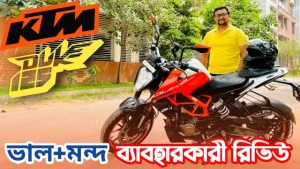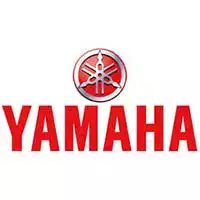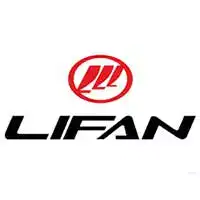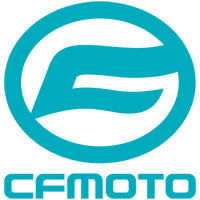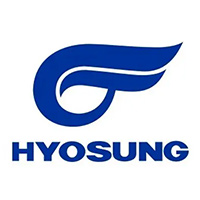Suzuki teams up with Rancon to assemble motorcycles in Bangladesh
Suzuki teams up with Rancon to assemble motorcycles in Bangladesh
The company plans to launch full-scale operations in the first quarter of 2014 in collaboration with Rancon Motor Bikes Ltd, a concern of Rangs Group.
“Bangladesh is a very big potential market for motorcycles due to its high population base,” said Katsumi Takata, general manager of Suzuki Motor Corporation’s global motorcycle marketing.
He went on to tip the country’s annual motorcycle sales to hit the 1.4 million-mark in the near future. The country sells up to 500,000 motorcycles annually, at present.
The two companies yesterday inked the deal, which involves Rancon constructing a state-of-the-art plant in Savar at a cost of Tk 80 crore to exclusively build Suzuki motorcycles.
The announcement of the collaboration comes at a time when its competitor Honda Motor Corp is wrapping up its preparations to launch a full-scale motorcycle assembly in the country in partnership with the state-owned Bangladesh Steel and Engineering Corporation.
“I have a long desire to manufacture motorbikes locally. Today, my dream has come into reality,” said A Rouf Chowdhury, chairman of Rangs Group, adding that his company plans to manufacture the two-wheeler vehicles locally within the next three years.
The plant is expected to be complete by December and the company to start selling motorcycles in February or March, according to Romo Rouf Chowdhury, managing director of Rangs and Rancon Motor Bikes.
Around 20,000 motorcycles will be assembled within the first year by sourcing all components in the completely knocked-down (CKD) format from India.
Initially, three models (ranging from 110, 125 and 150cc) will be on offer, with their prices ranging from Tk 1.25 lakh to Tk 2.5 lakh.
“Motorcycles have tremendous prospects here as proper transportation system is yet to be established,” said the Rangs Group MD, while singling out the rural areas.
“In many village areas, people cannot travel by bus due to narrow roads. In that case, motorcycles would be the best alternative.”
The Rangs MD went on to highlight the discrimination faced by the motorcycle assemblers, who pay 100 percent duty on CKD imports whereas the local manufacturers only pay 40 percent.
“There prevails a 60 percent tax gap between the motorcycle assemblers and manufacturers—it needs to be addressed as the motorbike is no longer a luxury item.”
Bike News
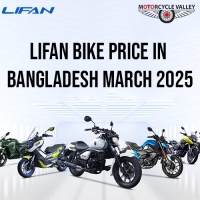
Lifan is one of the best motorcycle brands in the Bangladeshi motorcycle market, whose reputation is heard by bike lovers of a...
English Bangla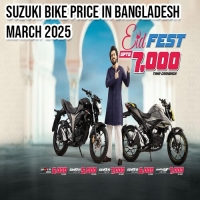
Suzuki is a leading and very popular Japanese motorcycle brand in the motorcycle market of Bangladesh. As because, most of their p...
English Bangla
Lifan is a very familiar name to the diverse bike lovers of Bangladesh, each of whose bikes is attractive to bike lovers, whic...
English Bangla
Honda is a globally renowned automobile and motorcycle brand that is recognized for its innovation, reliability, and performan...
English Bangla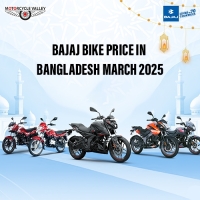
Bajaj is a well-known motorcycle brand among all levels of bike lovers in Bangladesh, whose reputation and quality are nothing...
English Bangla







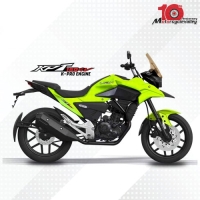

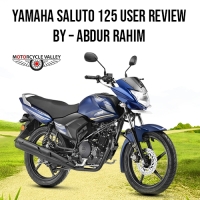
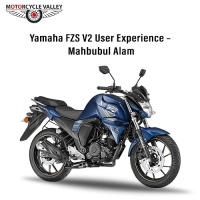
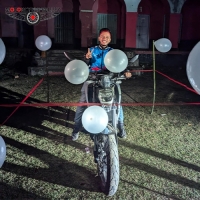
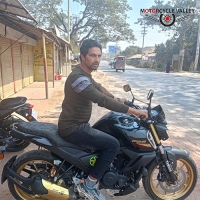
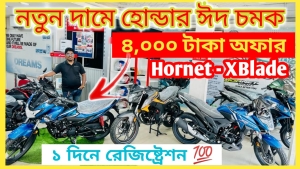

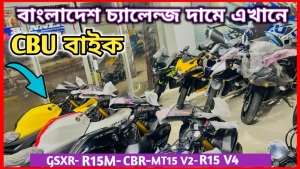
-1656308005.jpg)
